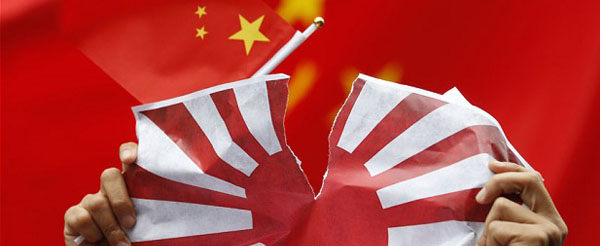by Peter G. de Krassel
The first Karate Kid movie involved Japanese actors and took place in Japan. The 2010 remake of Karate Kid took place in China with Chinese actors and Jackie Chan. Isn’t it time Washington dumped a broken and broke Japan as its major ally in Asia and replaced it with a prosperous China, like Hollywood did? This is a theme I have raised in my earlier books. I am at a loss as to why America is still so closely allied with Japan, the country that attacked and brutalized Americans during World War II, and continues to do so with its economic policies today, while Washington shuns China, America?s World War II ally that fought side-by-side with America to defeat Japan, and still wants to partner with the U.S.
China’s expanding economic might is buying up small and mid-size Japanese companies and real estate, taking advantage of depressed asset prices – the same as it is doing in the U.S. China is also now Japan’s biggest trading partner and a bulk purchaser of Japanese government bonds. The bond purchases are helping drive up the value of the yen, making Japan’s exports less competitive with China’s.
China’s dominant shadow over Japan was further highlighted in September 2010, after a Chinese trawler collided with a Japanese coast guard vessel off the islands known as Diaoyu to the Chinese and Senkaku to the Japanese. The uninhabited islands northeast of Taiwan are claimed by both countries and are administered by Japan.
Japan arrested the trawler’s captain for illegal fishing but released him after anti-Japanese protestors rallied outside the Japanese Embassy in Beijing and across China and Hong Kong. China also canceled high-level political and cultural exchanges, instructed travel agencies to cancel tours to Japan and withheld the shipment of rare earth metals used in electronics, posing a significant threat to the Japanese economy. China controls more than 95 percent of the world’s rare earth minerals. It’s no wonder Japan went looking for alternative sources – and found them in the middle of the Pacific.
Anti-Japanese protests continued in China for weeks after the trawler captain was released.
The fact that the captain’s arrest coincided with the September 18 anniversary of an incident that led to Japan setting up a puppet government in Manchuria in the early 1930s, a date that stirs bitter memories in China of the brutal Japanese occupation, stirred China’s nationalistic outburst and effective economic reaction to the arrest. It’s a point U.S. foreign policy experts at the State Department overlooked, or chose to ignore when Secretary Hillary Clinton announced American support for Japan in the dispute – a view China harshly criticized.
The unresolved issue of compensation and an apology to comfort women – war-time sex slaves – not only nags at China after all these years, but South Korea and the Philippines, two close U.S. allies.
Japan’s response to the nuclear crisis that followed the March 11, 2011 earthquake and tsunami was confused and riddled with problems, including an erroneous assumption that an emergency cooling system was working and a delay in disclosing dangerous radiation leaks, according to the government’s independent report.
A self-nuked Japan blinked and China smiled. Japan lost face big time and got into deeper debt because of the earthquake-tsunami-nuclear disaster, while China gained big face as its government?s piggy banks overflowed. Which face makes more sense for America to include in its 21st-century geopolitical picture?
Photo by AP/Kin Cheung

